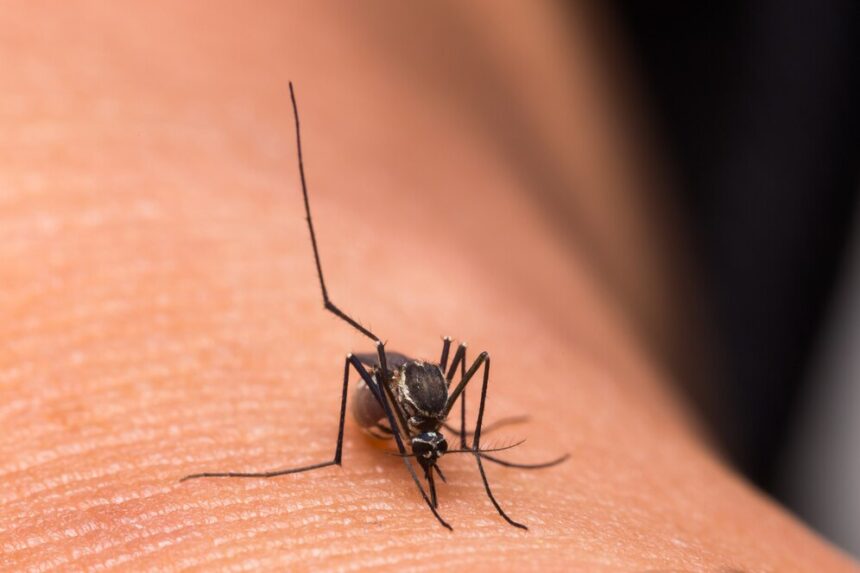In line with global efforts to combat malaria, Zambia continues to make significant strides in the fight against the deadly disease. Dr. Quince Mwabu, the Director General of the Medical for Quality Health Care in Zambia (MQHZ), has emphasized the importance of adhering to the national malaria policy, underscoring the critical need for accurate diagnosis and responsible use of anti-malaria medication.
On April 25, Zambia joined the global community in commemorating World Malaria Day under the theme “Malaria ends with us: Reinvest, Reimagine, Reignite.” The theme highlights the collective responsibility of nations and individuals in eradicating malaria. Dr. Mwabu’s message during the commemoration reiterated that getting tested before treatment is a fundamental part of ensuring accurate diagnosis and proper management of malaria cases.
The Importance of Testing Before Treatment
Dr. Mwabu stressed that every suspected malaria case must undergo testing and be confirmed before treatment is administered. This approach aligns with Zambia’s national malaria policy, which advocates for the responsible use of anti-malaria medication to prevent drug resistance and ensure effective treatment. By emphasizing the need for testing, Dr. Mwabu aims to promote a more effective and targeted approach to malaria control, ensuring that patients receive the appropriate treatment based on their diagnosis.
“Getting tested before treatment is crucial to an accurate diagnosis and the responsible use of anti-malaria medications,” Dr. Mwabu explained. “This policy helps ensure that only those who truly have malaria are treated, thus reducing unnecessary medication use and preventing the development of drug-resistant strains.”
Zambia’s Progress in the Fight Against Malaria
Zambia has made remarkable progress in reducing malaria cases and deaths. Minister of Health Elijah Muchima, in a speech read on his behalf in Eastern Province, highlighted that the country had recorded a 16% reduction in malaria cases and a 30% decline in malaria-related deaths in 2024. These statistics reflect the country’s concerted efforts to tackle malaria through effective prevention, testing, and treatment strategies.
The Minister attributed this progress to the government’s sustained efforts, including the distribution of insecticide-treated nets, increased access to diagnostic testing, and the introduction of new malaria treatments. These efforts, combined with widespread public health campaigns, have contributed to the steady decline in malaria-related cases and deaths.
The Role of the National Malaria Policy
Zambia’s national malaria policy plays a central role in the country’s malaria control strategies. The policy is designed to ensure a coordinated approach to malaria prevention, diagnosis, and treatment across the country. Dr. Mwabu emphasized the importance of adherence to the policy in maintaining the progress made so far and in achieving Zambia’s goal of eliminating malaria.
“By adhering to the national malaria policy, we can maintain the gains we have made in the fight against malaria,” Dr. Mwabu said. “It is essential that both healthcare providers and the public understand the importance of following the guidelines for testing and treatment to continue reducing the burden of malaria.”
Global Commitment to Ending Malaria
World Malaria Day serves as a reminder of the global commitment to ending malaria by 2030. The World Health Organization (WHO) has set ambitious goals to reduce malaria cases and deaths globally, and Zambia is actively contributing to these efforts. The country’s dedication to malaria control is evident in its continued investment in public health programs, including the distribution of bed nets, educational campaigns, and the expansion of diagnostic and treatment services.
The theme of this year’s World Malaria Day, “Malaria ends with us: Reinvest, Reimagine, Reignite,” calls for renewed commitment and innovation in the fight against malaria. Dr. Mwabu and other public health officials in Zambia are working to reignite efforts to eliminate malaria by investing in better healthcare systems, new technologies, and more effective treatment options.
Looking Ahead
As Zambia continues to make progress in the fight against malaria, the country remains committed to ensuring that every suspected malaria case is tested and accurately diagnosed. Dr. Mwabu’s call for adherence to the national malaria policy is a reminder that the responsible use of anti-malaria medication is essential for the long-term success of malaria control programs.
With continued investment, public awareness, and adherence to best practices in malaria diagnosis and treatment, Zambia is on track to further reduce malaria cases and deaths, contributing to the global effort to eliminate the disease. As Dr. Mwabu and his team at MQHZ continue to advocate for better healthcare practices, the hope is that malaria will soon be a thing of the past for Zambia and the wider region.
Zambia’s fight against malaria is a success story in the making, driven by strong leadership, innovative policies, and a commitment to improving public health. As the country commemorates World Malaria Day, it serves as a reminder that with the right policies, resources, and collective action, malaria can be eradicated. By adhering to the national malaria policy and ensuring that every suspected case is tested before treatment, Zambia is taking crucial steps toward a malaria-free future.






